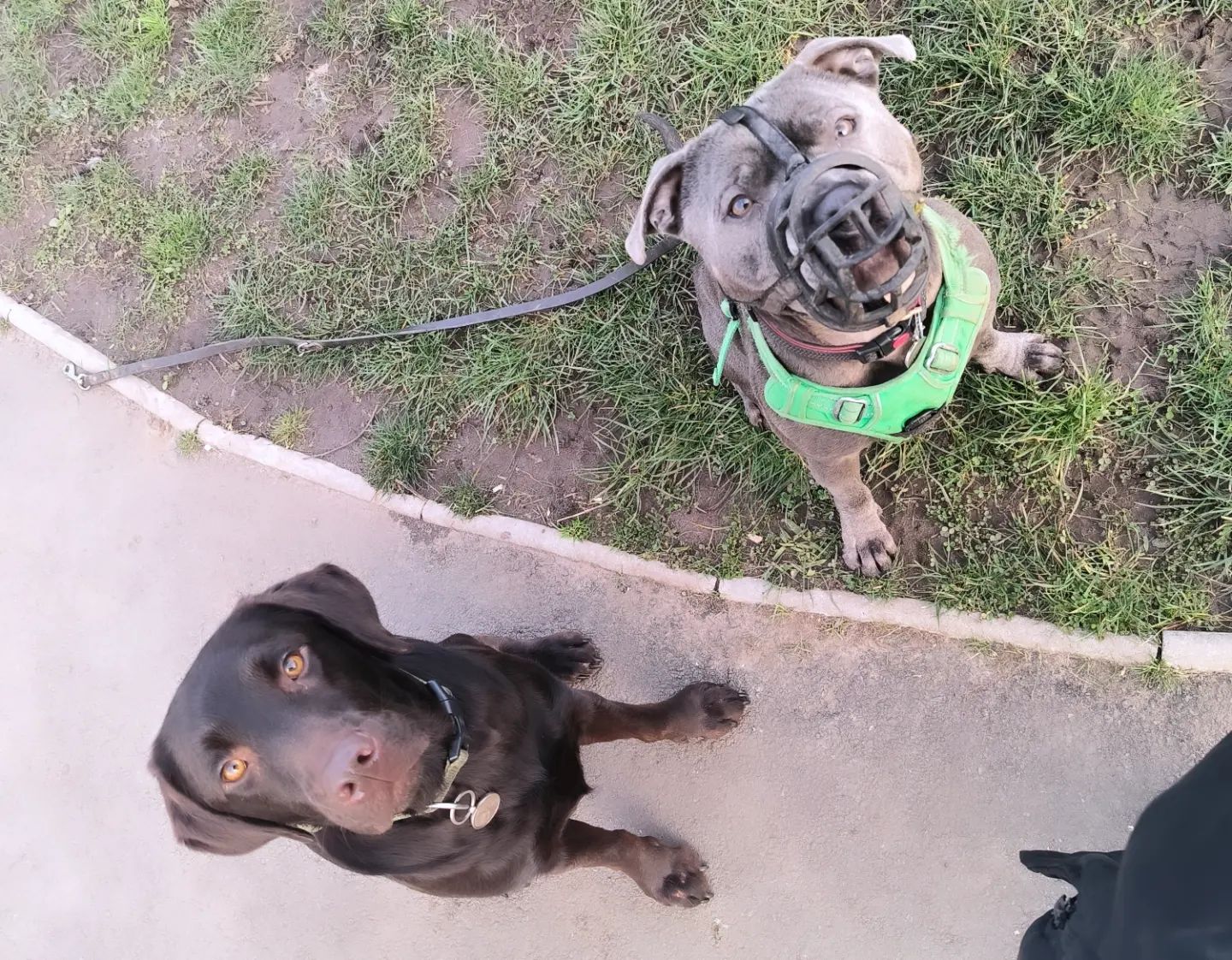Blue’s appetite gets him muzzled






The Joy and Challenge of Owning a Muzzled Dog
Muzzles can often have a negative connotation for dogs and owners alike, but for some pets, they can be a necessary tool for both safety and training purposes. One such pet is the infamous “Muzzled Dog" – the pup that loves to eat everything in sight, from food scraps to shoes, and everything in between. While it may seem like a daunting task to own a dog that needs to wear a muzzle, it can also bring about a unique and rewarding experience.
Section 1: Understanding the “Muzzled Dog"
Muzzles can be used for a variety of reasons, including aggression and fear, but they are primarily used to prevent dogs from eating or ingesting foreign objects. For some dogs, this can be a lifelong struggle – a behavior that needs to be curbed to prevent serious health issues or even surgery. These pups are what we call “Muzzled dogs," and they require a specific type of training and care to keep them safe and healthy.
Muzzled dogs are often highly food motivated and have a strong sense of curiosity. They may eat anything from trash to rocks, and they often do so without warning. This can cause serious health issues, such as bowel obstructions and poisoning, as well as costly vet bills. With the use of a muzzle, however, owners can control what their dogs eat, keeping them healthy and safe.
Section 2: Training a Muzzled Dog
Training a Muzzled dog requires patience, consistency, and positivity. It is important to start at a young age and to use positive reinforcement techniques to teach your dog to accept and even enjoy wearing their muzzle. This can be done by gradually desensitizing your dog to the muzzle, allowing them to sniff it, touch it, and eventually wear it with gradual rewards, such as praise, playtime, and treats.
It is also important to continue training your Muzzled dog on a regular basis, reinforcing their behavior and keeping them safe from harmful objects or food. This may involve keeping a close eye on them during walks, avoiding areas with potential hazards, and providing ample mental and physical stimulation through playtime, exercise, and training sessions.
Section 3: The Benefits and Challenges of Owning a Muzzled Dog
While owning a Muzzled dog can certainly present its challenges, it also comes with unique benefits. These dogs are often highly intelligent and trainable, making them wonderful companions for positive reinforcement training. They are also typically highly motivated by food, making them eager to learn and please their owners.
However, Muzzled dogs can also be a source of anxiety and stress for owners, as they require extra attention and care to keep them safe. The use of a muzzle can also be stigmatized by others, leading to potential judgment or criticism from people who do not understand the need for their use.
Ultimately, owning a Muzzled dog requires a strong commitment to training, care, and love. With proper training, supervision, and care, these dogs can live happy and healthy lives, free from the danger of ingesting harmful objects.
Q&A:
Q: Is it cruel to put a muzzle on a dog?
A: No, it is not cruel to put a muzzle on a dog if it is necessary for their safety or training. Muzzles are a tool that can be used to prevent dogs from eating dangerous objects or to control aggressive behavior. However, it is important to use muzzles correctly and to train your dog to accept and even enjoy wearing them.
Q: Can muzzles be used for aggressive dogs?
A: Yes, muzzles can be used to prevent aggressive behavior in dogs. However, it is important to seek the guidance of a professional trainer or behaviorist to properly train your dog and to prevent any harmful or dangerous situations.
Q: Can a Muzzled dog still have a happy life?
A: Yes, a Muzzled dog can still have a happy and fulfilling life with love, attention, and proper care. It is important to provide ample mental and physical stimulation, positive reinforcement training, and to supervise your dog to prevent any harmful behavior or ingestion of dangerous objects.







